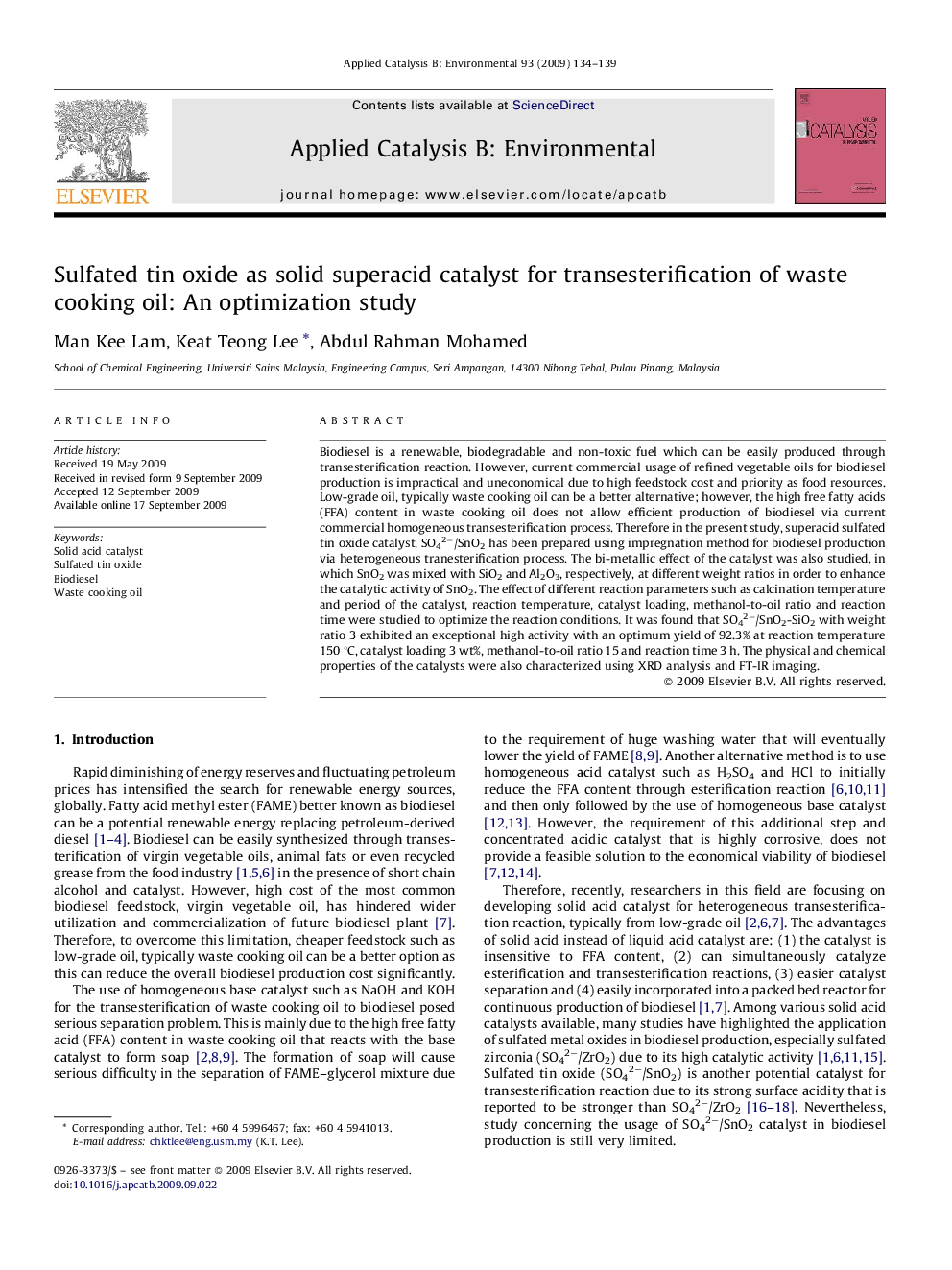| Article ID | Journal | Published Year | Pages | File Type |
|---|---|---|---|---|
| 47357 | Applied Catalysis B: Environmental | 2009 | 6 Pages |
Biodiesel is a renewable, biodegradable and non-toxic fuel which can be easily produced through transesterification reaction. However, current commercial usage of refined vegetable oils for biodiesel production is impractical and uneconomical due to high feedstock cost and priority as food resources. Low-grade oil, typically waste cooking oil can be a better alternative; however, the high free fatty acids (FFA) content in waste cooking oil does not allow efficient production of biodiesel via current commercial homogeneous transesterification process. Therefore in the present study, superacid sulfated tin oxide catalyst, SO42−/SnO2 has been prepared using impregnation method for biodiesel production via heterogeneous tranesterification process. The bi-metallic effect of the catalyst was also studied, in which SnO2 was mixed with SiO2 and Al2O3, respectively, at different weight ratios in order to enhance the catalytic activity of SnO2. The effect of different reaction parameters such as calcination temperature and period of the catalyst, reaction temperature, catalyst loading, methanol-to-oil ratio and reaction time were studied to optimize the reaction conditions. It was found that SO42−/SnO2-SiO2 with weight ratio 3 exhibited an exceptional high activity with an optimum yield of 92.3% at reaction temperature 150 °C, catalyst loading 3 wt%, methanol-to-oil ratio 15 and reaction time 3 h. The physical and chemical properties of the catalysts were also characterized using XRD analysis and FT-IR imaging.
